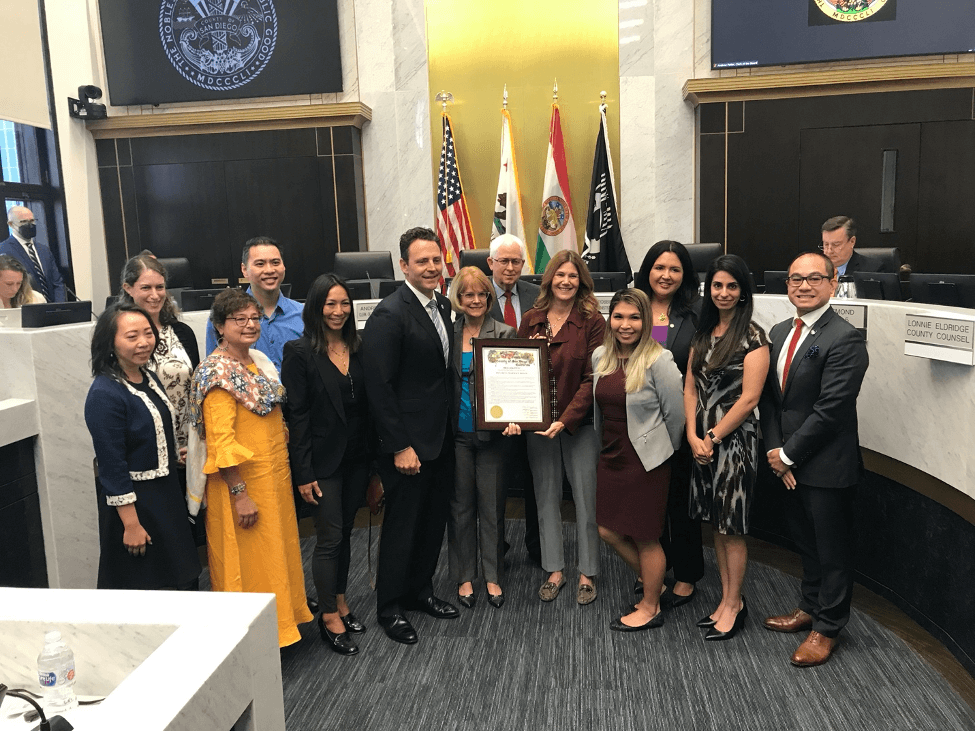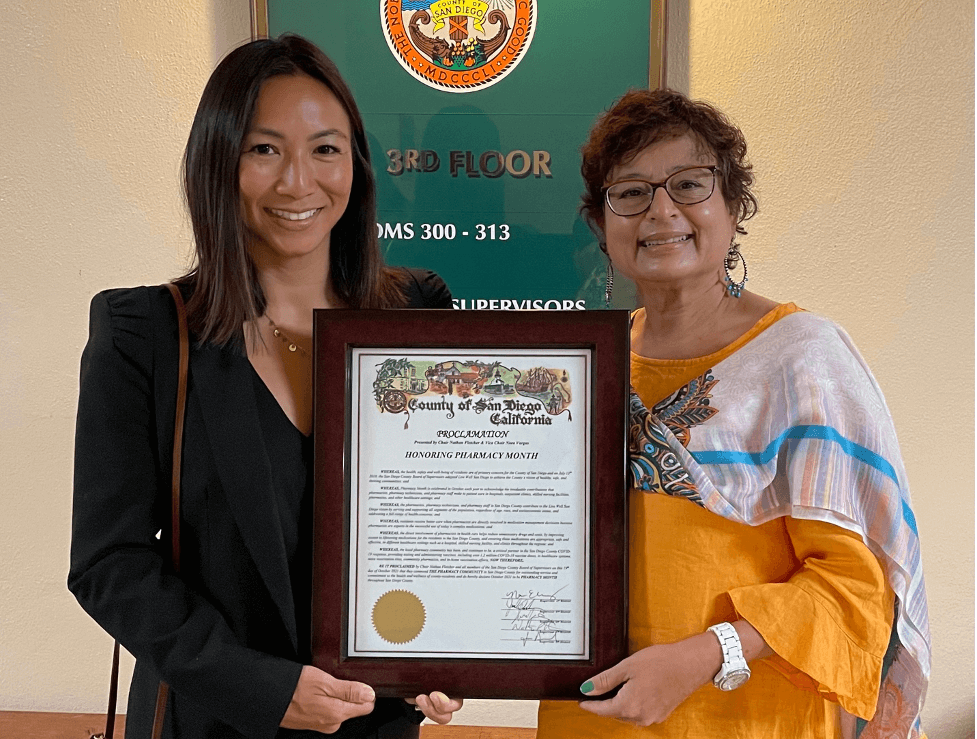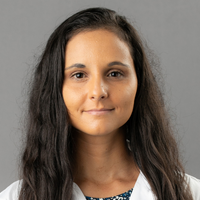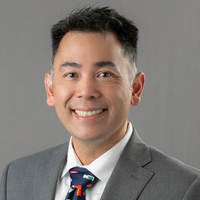Department of Clinical Pharmacy Practice: Quarterly Newsletter Columns
January 20, 2023
Aryana Sepassi: Professional Organization
In the last year, I’ve tried to become more involved in the San Diego chapter of the California Society of Health-System Pharmacists (CHSP). Specifically, I’ve enjoyed my time working as an alternate delegate for our group in the House of Delegates. We discuss several important policy issues and potential changes, along with their implications for pharmacists in California. For example, stressing the importance of comparative effectiveness research (a tenet of the Affordable Care Act) as an activity that also falls under the purview of pharmacists was essential for this year’s House of Delegates meeting. I hope to continue working with the San Diego CHSP chapter in the future as a champion for pharmacists’ rights and responsibilities.
Lee Nguyen: UCI Pharmacist, Infectious Diseases and HIV Clinic
I currently practice within the Infectious Diseases, HIV clinic at the UC Irvine Medical Center in Orange, CA. The infectious diseases, HIV clinic is one of only a handful of clinics in Orange County that specializes in the management of HIV and Pre-exposure Prophylaxis (PrEP) therapy in patients. We contribute to the Dept. of Health and Human Services’ goal of Ending the HIV Epidemic by treating HIV infected persons rapidly with effective therapies to sustain viral suppression and through PrEP therapy to prevent transmission.
Over the past year, I have attempted to see as many patients as I am able to start building the patient-provider relationship. Depending on the complexity of the patients’ polypharmacy (complicated medication regimens), I may see the patients prior to, during, or after their visit with the infectious disease physician to provide medication management. Our goal is to streamline medication therapy to what is needed and effective, but also to minimize duplicative therapy to limit preventable adverse effects. As part of the collaborative practice agreement, I also see the patients independently to assess their medication adherence, provide medication refills, dose adjustments, order laboratory tests, and schedule follow-up visits.
October 4, 2022
Shawn Griffin: UCI Pharmacist Stem Cell Transplant and Cellular Therapy Clinic
I currently practice within the Stem Cell Transplantation and Cellular Therapy Program at the UCI Chao Family Comprehensive Cancer Center in Orange, CA. The Chao Family Comprehensive Cancer Center is one of only 53 National Cancer Institute-Designated Comprehensive Cancer Centers in the country and as a result is at the forefront of cancer-related patient care and research. In 2020, the Cancer Center opened the Stem Cell Transplantation and Cellular Therapy Program. One of the main focuses of this Program is utilizing transplantation and cellular therapy to treat and cure hematologic malignancies. Due to the complexity of these therapies, large interprofessional patient-care teams are needed to carry out safe and effective care. Pharmacists play an integral role as medication experts and are heavily relied on to help with medication selection, monitoring, access, and education.
At UCI, I have spent the past year developing a Pharmacist Stem Cell Transplant and Cellular Therapy Clinic. As a result, all patients at UCI undergoing one of these therapies will soon be scheduled to have an outpatient clinic visit with a pharmacist at four distinct timepoints throughout their care. At these visits, a pharmacist will perform a comprehensive medication history, provide medication education, manage medication side effects, perform therapeutic drug monitoring, and order appropriate supportive care medications through collaborative practice agreements.
Since 2020, over 60 patients have received life-saving stem cell transplantation or cellular therapy at UCI. The program is only expected to grow, and continued expansion of pharmacist-provided services will be essential.
Erin Knox: Experiential Pharmacy Education
As the summer comes to a close, the Office of Experiential Education is thrilled to reach an important milestone – completion of our first set of IPPEs! Our student pharmacists completed Introductory Pharmacy Practice Elective Experiences in both community and institutional settings during 2-week concentrated blocks.
UCI Health welcomed a large portion of IPPE institutional rotations with effective integration of the student pharmacists. Comments about UCI Health preceptors were overwhelmingly positive: I think they are super helpful, they really genuinely want to teach us everything, they are super nice and I personally like how it is a hands on experience.
Community IPPE sites included UCI Health as well as outside partners. Students were able to preference settings including independent, chain, and specialized pharmacy settings. Feedback highlighted activities in which student pharmacists were able to participate: “The preceptor also presented opportunities for the student to apply what they have learned in regards to recommending self-care products to patients.”
The SPPS Office of Experiential Education is excited to be preparing for our charter cohort of students to complete IPPE Electives during the upcoming academic year. During PY2, students will be allowed to preference an IPPE Elective occurring during either fall, spring, or summer quarter. Scheduled as longitudinal experiences (8 hours per week across 10 weeks), these IPPEs will allow students to gain exposure to more specialized aspects of patient care. Elective settings include oncology, medication safety, emergency department, specialty pharmacy, ambulatory care, and advanced community.
Student pharmacists will continue experiential training at the end of PY2 with the IPPE Integrative Health. The Office of Experiential Pharmacy Education is looking forward to the development of this unique IPPE, allowing students to apply learned principles of various complementary interventions, including herbals and lifestyle modalities.
We look forward to seeing the student pharmacists succeed on the next part of the IPPE series!
Megan Nguyen: Professional Organization
I have had the privilege to give back to the profession in different ways. Being involved in professional pharmacy organizations allows me to connect with pharmacists from across the academy to learn from their experiences as well as collaborate on initiatives that advocate for the profession. This past year, I served on the American Association of Colleges of Pharmacy’s Membership Engagement Committee and the Strategic Planning Taskforce for the Student Services section. The updated strategic plan now recognizes the value of diversity, equity, and inclusion and the importance of encouraging and providing activities that promote health and well-being for faculty, administrators, staff, and students across the academy. Additionally, I currently serve as the Chair of the Healthcare Reform Committee with the California Society of Health System Pharmacists. This committee develops resources describing emerging changes in healthcare delivery, shares information on healthcare reform and recognizes outstanding patient care through innovations in pharmacy practice. It is exciting to be a part of the Healthcare Reform Committee as I learn about innovative practices that our colleagues are spearheading. Subsequently, I am able to share these innovative practice models and ideas with peers and student pharmacists as they pave their future career paths in the profession.
May 4, 2022
Keri Hurley-Kim: The role of pharmacists in ICLAC
Since 1998, the Immunization Coalition of Los Angeles County (ICLAC) has brought together groups of Los Angeles Community members, public health professionals, healthcare providers and organizations, industry and academia, with the goal of improving access to immunizations across the lifespan. A specific focus is on those at highest risk for vaccine preventable diseases due to social, medical, or environmental factors.
The COVID-19 pandemic presented a number of challenges to the Coalition’s ongoing work, and many members were asked to shift focus to projects and initiatives in public health and healthcare related to COVID-19 vaccine delivery and education. However, as we cautiously begin to transition to a new endemic phase of the COVID-19 era, a grave reality is emerging – an undercurrent of unmet needs in primary care and disease prevention propelled by waves of COVID-19 cases that placed historic levels of stress on the healthcare system. Also during the pandemic, pharmacists emerged as an indispensable frontline force for fostering vaccine access. A large majority of COVID-19 vaccines in the US have been administered by pharmacists, and essentially every dose has passed through the hands of a pharmacist at some step. These things together highlight a need for community-driven and science-informed grassroots efforts to shore up vaccination rates and advance sustainable mechanisms for vaccine delivery in our pharmacies and across the health system.
I have been involved with ICLAC since 2015, and as we approach the coalition’s 25th anniversary next year, I am leading the effort to reinvigorate the coalition from top to bottom. This will involve recruitment of a large number of new stakeholder members representing the vast diversity of LA County. We will relaunch vaccine summit meetings and expand involvement of pharmacists in coalition leadership. Ultimately, we will form new workgroups to take up impactful projects aimed at building vaccine confidence, acceptance and access, and supporting the professionals who provide this vitally important service. It has been one of the greatest joys of my professional life to serve in this organization, and I am eager to see ICLAC grow into a new post-pandemic role.
Erin Knox: Update on Experiential Pharmacy Education
Summer is approaching which means the first IPPEs are almost upon us! Students are scheduled for two separate two-week IPPE rotations in community and institutional settings, assigned during six blocks between June and September.
The majority of our cohort will be assigned UCI Medical Center (UCIMC) for institutional (hospital IPPE), with a small group completing IPPEs at our affiliated site, Children’s Hospital of Orange County (CHOC). UCI Experiential Pharmacy Education has been working closely with UCIMC pharmacy leaders to develop an IPPE that exposes PharmD students to various areas of hospital pharmacy practice. This IPPE will provide the student with exposure to medication distribution practices in the main hospital, supplemented with experience in one of several sterile compounding areas, including infusion centers or the hospital IV room.
Student preferences were solicited in early winter to facilitate placement in community pharmacy IPPEs. Recent employment experience was considered and geographical preferences were allowed, with a small group of students requesting placements outside the 30-mile Orange County area. In addition to location, students were asked to rank a preference for placement in the following five groups of community practice types:
- Independent pharmacy
- Hospital-affiliated outpatient pharmacy
- Retail/chain/stand-alone pharmacy
- Pharmacy within shopping
- Specialized pharmacy (such as compounding or student health)
Several training sessions are scheduled for late spring, including preceptor virtual on-boarding. Preceptor orientation sessions will occur prior to the first student placements, keep posted for dates to be announced in the coming weeks or you can visit the website: pharmsci.uci.edu/experiential-education.
Christine Cadiz: Professional involvement in San Diego Society of Health-System Pharmacists
Giving back to the profession through service within professional organizations has been a rewarding experience. I attribute much of my growth in professionalism and leadership to these experiences. Since my days as a PharmD student, I have been involved with multiple organizations, most notably the California Society of Health-System Pharmacists (CSHP) and our local chapter, the San Diego Society of Health-System Pharmacists (SDSHP). As a student and new practitioner, I was able to lead efforts in conducting outreach to young students, participate in community health events, develop educational programming, and learn by example from passionate pharmacist leaders. Everything seemed to come full circle when I became president of the SDSHP chapter from August 2019 to December 2020. I worked closely with a team of veteran pharmacists, as well as new graduates and student leaders, to provide members with opportunities to volunteer in the community, connect with each other, advocate for our profession, and expand educational offerings. Recent graduates of residency programs were encouraged to speak in our new practitioner-led CE series as an opportunity for professional development.
Of course, connecting was especially difficult with the start of the COVID-19 pandemic. Despite our inability to come together and celebrate at our annual SDSHP Industry Night & Installation Gala that was scheduled for late March 2020, the pharmacy community banded together in a different way. It was particularly inspiring to see how members of our pharmacy family served local communities through working on the front lines, organizing fundraising, volunteering time to help our most vulnerable populations through grocery and prescription delivery, and contributing to or leading vaccination efforts. We set a much-needed example of togetherness in our society in a time when it seemed nearly impossible to be together.
It has been truly fulfilling to work alongside talented and passionate people, provide mentorship to the next generation of pharmacists, and to learn from seasoned practitioners, new practitioners, and students alike. Moving forward, engaging our students and new practitioners to get involved in and stay involved in professional organizations as they navigate their careers will be vital, as they are the future leaders in pharmacy.
See photos and photo captions below:
—
San Diego pharmacy leaders receiving a proclamation from San Diego County in October 2021, officially declaring October as Pharmacy Month, and recognizing pharmacists’ invaluable contributions to patient care, the Live Well San Diego vision, and especially leading COVID vaccination efforts.


February 16, 2022
Cheryl Wisseh: To Help Everyone Pharmaceutical Care Clinic (T.H.E PCC)
To Help Everyone (T.H.E) Health and Wellness Center is a Federally Qualified Health Care Center located in South Los Angeles and is a member of the Southside Coalition of Community Health Centers; a non-profit organization that has been developed to coordinate, improve, and sustain access to, and delivery of health care services to medically underserved and impoverished community members of South Los Angeles. Collectively, the Coalition member clinics served around 211,600 unduplicated South LA residents in 2018. Many of the patients served are Non-Hispanic Black and Hispanic, 84% and 15% of patients live under 100% and 200% of the federal poverty level (FPL), respectively, and 93% of patients have government (county, state, or federal) funded health insurance (Medicaid/Medi-Cal, Medicare, and My Health LA). The T.H.E PCC was planned in 2020 (pre-implementation phase) during the initial height of the COVID-19 pandemic and the implementation phase began in September 2021. The mission of the clinic is to provide chronic disease state medication optimization services that facilitate medication access, safe and appropriate medication use, and excellent medication adherence through culturally humble, patient-centered care and the engagement of pharmacists who are committed to the health of racially, ethnically, and socioeconomically minoritized communities. Prior to planning and implementation of T.H.E PCC, there were no clinical pharmacy services at the clinic.
The clinical pharmacy services that are currently being offered include comprehensive medication management on a provider and patient self-referral basis; and targeted medication management services for patients within the clinic’s pre-existing CDC recognized Diabetes Wellness Program (DWP). As a clinical pharmacist, I have been embedded within the chronic care committee which is consists of several interdisciplinary health care professionals: Physician Assistant, Nurse Practitioner, Registered Dieticians, Diabetes Educator, Licensed Clinical Social Worker, Patient Services Manager, Chronic Care Case Manager, Patient Outreach Office, and Chief Medical Officer. All clinical pharmacy services are delivered under a collaborative practice agreement. As part of the implementation phase of T.H.E PCC, a pharmacy services billing model is currently being established. The future plans for T.H.E PCC include: the ongoing development and implementation of the clinic’s Hypertension Control Initiative, funded by the Health Resources and Services Administration (HRSA)- this program is being modeled based on the clinic’s current DWP and the American Heart Association curriculum. Ongoing studies regarding “Diabetes Medication Regimen Complexity and Diabetes Clinical Outcomes” (PI: Cheryl Wisseh) and “Racial/Ethnic Disparities in Diabetes Medication Regimen Complexity Diabetes Outcomes” (PI: Cheryl Wisseh) are aimed overall at informing the development of a community-partnered, cardiometabolic outcomes management program. Furthermore, as the inequitable distribution of the social determinants of health are often root causes to health disparities and poor health outcomes for health disparity populations, public health students also being embedded with the clinic chronic care committee to address some of the measures that we document for patients, at an interpersonal level, regarding their social determinants of health. I look forward to serving as their primary preceptor regarding chronic care management and population health.
Jonathan Watanabe: Professional Organization
For the National Academies of Sciences, Engineering, and Medicine, Dr. Watanabe was recently appointed to The White House Office of National Drug Control Policy-sponsored committee “Methadone Treatment for Opioid Use Disorder: Examining Federal Regulations and Laws – A Workshop” chaired by Dr. Alan Leshner, Chief Executive Officer, Emeritus of the American Association for the Advancement of Science and former Executive Publisher of the journal Science. This two-day public workshop will convene experts and stakeholders to examine the current federal regulatory and legal landscape salient to provision of and access to methadone for treatment of opioid use disorder. In January, with Dr. Robert Califf, former FDA Commissioner and current Head of Strategy and Policy at Google Health and Verily LifeSciences, and Dr. Greg Simon, Kaiser Permanente Washington Health Research Institute Investigator, Watanabe published a four-paper series in the Real World Evidence theme issue of the journal Clinical Pharmacology and Therapeutics, that provided guidance and decisions aids for pursuing real world clinical studies, both experimental and observational, that seeks to enhance the validity, relevance, speed, and inclusiveness of health research and to improve the use of real world data in regulatory decision making that also incorporated lessons learned from the COVID-19 Pandemic.
October 25, 2021
Joyce Lee: CAREPILLS to Heal
In 2020, the first pharmacist-managed comprehensive medication management (CMM) service was established in one of the two Federally Qualified Health Centers maintained by UCI Health. These FQHCs, located in Santa Ana and Anaheim, serve over 20,000 patients per year with 99% of the patient population live below 200% of the federal poverty level.
The CMM service, also known by the acronym “CAREPILLS,” is a referral-based service operated under the collaborative practice agreement. It targets high-risk patients with uncontrolled chronic diseases and takes holistic measures to help them achieve timely control through individualized medication optimization plans that promote medication adherence and safety. Common clinical activities performed via CAREPILLS include but are not limited to pharmacotherapy review, dose adjustment and patient empowerment in self-care, medication knowledge and interpretation of self-monitoring devices. CAREPILLS is also uniquely designed to be pandemic compatible; it provides flexible care approaches, which include zoom interviews and telemedicine in addition to the traditional face-to-face visits.
Currently, CAREPILLS is also part of FQHCs’ initiative to promote timely management and self-care to achieve therapeutic control through remote monitoring technologies for blood pressure, weight management and diabetes. In a pilot study of 81 patients with uncontrolled hypertension, approximately 61% of those who received pharmacist-guided medication optimization achieved clinical targets and medication adherence rate of 100% within 3 months. The pilot is currently ongoing.
Sarah McBane: Professional Service Within ACCP
My membership in the American College of Clinical Pharmacy (ACCP) has been one of my most rewarding professional roles. I have been a member of ACCP since 2004, and during that time I’ve had the opportunity to serve the College in many capacities. I have been a member and Chair of several committees, most of which produced publications addressing issues within clinical pharmacy or pharmacy education and training. In addition, ACCP has multiple Practice and Research Networks (PRNs) focusing on special interest areas. I have enjoyed many service roles within the Women’s Health PRN, the Ambulatory Care PRN, and the Education and Training PRN. These roles have ranged from committee membership to being Chair of the Women’s Health PRN.
I am currently finishing up a three-year term as a Regent for ACCP. ACCP is governed by a Board of Regents which consists of six Regents and the ACCP officers: President, President-elect, immediate Past President, Secretary, and Treasurer. All of these positions are elected from the ACCP membership. The Executive Officer of ACCP is an ex-officio, non-voting member of the Board. The Board of Regents assumes responsibility for the affairs of ACCP. During my time on the Board of Regents, ACCP reviewed and disseminated results from the comprehensive medication management (CMM) effectiveness and implementation study, an ACCP-funded, multi-site evaluation of CMM in primary care practices. The study produced multiple publications detailing various aspects of CMM as well as the Optimizing Medications for Better Health website which houses tools and resources to promote and facilitate CMM. More recently, the ACCP Board of Regents made strides in supporting diversity, equity, and inclusion by implementing a code of conduct attestation for all members seeking leadership roles or being recognized by ACCP. I believe ACCP was the first national pharmacy organization to implement something of this nature, and I saw similar initiatives arise from other organizations in the following months.
There are many benefits to ACCP membership, but I would personally emphasize two of them: connections and improvement. ACCP is smaller than many national organizations and as such, it is easier to network and develop relationships with like-minded pharmacists throughout the country and even across the globe. I have many colleagues and friends that I first met through ACCP. I also found my first two clinical positions through ACCP. ACCP offers professional improvement in different ways, particularly advocacy and education. ACCP works hard to promote clinical pharmacy and comprehensive medication management to stakeholders outside the profession of pharmacy, including policy makers and other health care professions. ACCP also offers excellent education and professional development opportunities through its meetings, certificate programs, and other venues. I always learn something new at each ACCP event, and I look forward to continued involvement within the College.
Erin Knox: Introducing Experiential Pharmacy Education
The SPPS Office of Experiential Education is excited to be preparing for our first cohort of students to complete Introductory Pharmacy Practice Experiences (IPPE) in summer of 2022. After PY1, students will participate in two 2-week concentrated experiences: one in a community pharmacy and another in an institutional or hospital setting.
Our partners at UCI Health are welcoming nearly the entire cohort of pharmacy students for the hospital IPPE, with additional support from Children’s Hospital of Orange County. Planning has been on-going, with input from our partners on learning objectives, activities, and feedback, focusing on shared educational goals.
Community IPPEs occur in various settings, including retail, independent, and compounding pharmacies. Our partners include pharmacists with undergraduate ties to UCI and many are active in professional organizations.
Student pharmacists will continue experiential training at the end of PY2 with two additional IPPEs. The Office of Experiential Pharmacy Education is looking forward to the development of a unique integrative health IPPE, allowing students to apply learned principles of various complementary interventions, including herbals and lifestyle modalities. Elective IPPEs will provide students an opportunity to individualize their education learning by experiencing practice in specialized settings, such as infusion centers or ambulatory clinics.
We look forward to seeing the students succeed on their first rotations!

